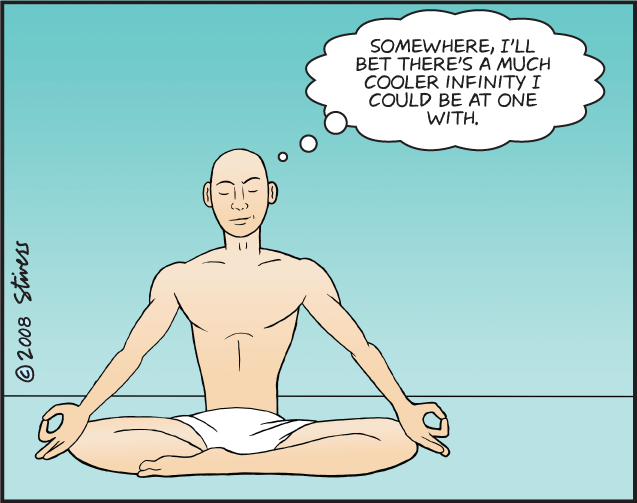

|
English Peasant Revolt On this day in 1381, serfs all over England rose up to protest the feudal system that constrained their lives, and the corruption of the landowners who held power over them. For us in the comparative freedom of today it is difficult to appreciate in full the courage of these men, these near-slaves, who dared stand erect and chatter of their rights against their masters and the familiars of God. Although with their tongues they might submit so that the irons should be struck from them, their spirit remained unbroken, while pathetically they believed in justice in an unjust world, of being able to fight like men against their enemies in power... To rebel, arms in hand, to risk death in battle or on the quartering-block, men must not only be at odds with the old ways, they must have some hope of securing by rebellion a better condition of living... They rebelled in the name of the king, who betrayed them. Word spread through the shires all over southeastern England, and in the first week of June, marchers converged on London. The gage of freedom, if beaten from the clenched fist, will later be picked up for another fight, and another, and for yet another fight until dreams at last are realized.
History page by Kim Milone |
1 June 2009
|
||||
— Pablo Neruda tr Stephen Mitchell |
2 June 2009
|
||||
|
Lamarck Redux For years, genes have been considered the one and only
way biological traits could be passed down through generations of
organisms. Not anymore. The context: In the early 19th Century, Lamarck theorized that giraffes got long necks by stretching to reach leaves and that offspring of giraffes that stretched their necks would have longer necks. Later, Darwin focused on random variation and differential survival, but he also hedged his bets and allowed for Lamarckian inheritance. (Of course, neither Lamarck nor Darwin had any idea what a gene was, or how traits are passed on.) At the end of the 19th Century, Weismann cut off the tails of 40 generations of rats, and measured the tails of each rat in the lineage. They didn’t get any shorter. He concluded that there was no such thing as inheritance of traits acquired in one’s lifetime. This became dogma that lasted 100 years. Only in the last 12 years, biologists are thinking about evolution of evolvability. It turns out that natural selection has selected itself. We all know about selection for fitness. But there has also been a staggering amount of selection for ability to grow in fitness. And this has led to mechanisms that allow parents to pass on traits acquired in their lifetimes to their children. The mechanism is still poorly understood, but it has to do with gene expression. We have a complete set of genes at all times and in all places in our bodies, but only a fraction of these are ‘switched on’ in a given cell at a given time. Switching a gene on has to do with methylation of the gene, with the chromatin that surrounds the DNA, and with the states of nearby genes. What we are learning is that there is a memory of which genes are turned on that can be passed on through multiple generations. ‘The analysis of these data shows that epigenetic inheritance is ubiquitous,’ write Eva Jablonka and Gal Raz, both of Tel-Aviv University in Israel. Their article outlines inherited epigenetic variation in bacteria, protists, fungi, plants, and animals. |
3 June 2009
|
||||
|
‘All know that the drop merges into the ocean, – Kabir (1398-1448) |
4 June 2009
|
||||
|
Creativity ‘Creativity is allowing yourself to make mistakes. ‘Creativity is piercing the mundane to find the marvelous.’ |
5 June 2009
|
||||
|
Aram Khachaturian, born this day in 1903 to a peasant family in Armenia,untrained in music until adulthood, was regarded in his lifetime as a peer of his contemporaries Shostakovich and Prokofiev. He was a communist, which is to say he shunned heady music for visceral appeal. Listen to the Allegro from his Trio for clarinet, violin, and piano |
6 June 2009
|
||||
|
Final enigma A lifetime of assiduous effort has culminated in this moment when you
arrive at the garden’s gate. — Josh Mitteldorf |
7 June 2009
|
||||
|
‘Empowering people with disabilities to learn to recognize and defy discriminatory attitudes and to hold high standards for respect and quality assistance is the most effective defense against abuse.’ ‘The world is a better place when everyone is included.’ |
8 June 2009
|
||||
|
High Flight Oh! I have slipped the surly bonds of Earth |
9 June 2009
|
||||
|
Neuroplasticity There are many specialized computers in our daily lives — computers that are programmed to transmit phone messages or control the ignition timing in your car. Imagine programming a single-purpose computer with a self-referential twist: its only talent is to recognize what circuits it is using most, and to enhance the function of those circuits. ‘Enhance’ is the hard part. It is easy to make more circuits of a particular kind. It is far more difficult to integrate the new capability in a way that actually makes the whole smarter. For centuries the human brain has been thought of as incapable of fundamental change. People suffering from neurological defects, brain damage or strokes were usually written-off as hopeless cases. But recent and continuing research into the human brain is radically changing how we look at the potential for neurological recovery. The human brain, as we are now quickly learning, has a remarkable ability to change itself - in fact, even to rewire itself. The Brain that Changes Itself, based on the best-selling book by Toronto psychiatrist and researcher Dr. Norman Doidge, presents a strong case for reconsidering how we view the human mind. |
10 June 2009
|
||||
|
Eclogue Mark Slouka, writing for the July issue of Harper’s, describes the cowbird egg that appears each year in the phoebe’s nest in the eaves of his summer home. The mother feeds the huge cowbird chick, and her own babies starve. One year I carried the cowbird’s egg into the woods and threw it against the trunk of a tree, where it made a dark, wet spot. Another year I didn’t notice the egg until after it had hatched. Unable to watch the nestlings starve, I took the intruder out of the nest and then, feeling like a fool, tried to feed it chopped worms and minced bits of large-mouth bass with a straw. It died—to spite me, I think—sitting hunched up in a corner of the shoebox like a bitter old man in an ill-fitting suit. A third year, shamefully, I killed the thing outright like a miniature chicken, though the distress of the phoebes over its disappearance touched my heart. After that I let things alone... ...far off, I can hear something whispering that this compulsion to do, to intrude ourselves, to improve on what is—even when wholly well-intentioned, particularly when wholly well-intentioned—is the source of all our troubles. Could it be that one of our most essential, even admirable human traits constitutes a richly ironic sin, a sin for which we, in the fullness of time, will be punished? Could it be that the pendulum, having swung over the course of the centuries from humility to hubris in the face of nature’s mystery, has reached the end of its arc? ... I’ll confess it straight out: intelligent design is a notion, a myth—all right, a theology—I’ve always been attracted to...Not that Toto might reveal to us at long last the benevolent, white-haired wizard behind the curtain, but something... subtler: that we could glimpse the wisdom behind it all, sense, even if momentarily, the pattern in the carpet. How glorious it would be to feel the key turn, to be able to enter the culture of things...to grasp the intent and the glory, the slow fire of life, behind them... ... And suddenly I’m there—on the border of acceptance. Of deference. Perhaps even of wisdom. On this side of the line is everything eternal, the vast tide of life breathing in and out, endlessly. Beyond it—marked by a running stream, a stand of trees, a thousand miles of wire—is the territory of love. And I’ll step across it every time. |
11 June 2009
Spirit of the Redwood |
||||
|
Reader, beware! ‘By and large, down the decades, the mainstream
newspapers have—often rabidly—obstructed and sabotaged efforts to
improve our social and political condition.’ ‘We are, and must remain, vagabonds and outlaws, for
only by so remaining shall we be able to keep the faith by which we
live, which is the pursuit of knowledge that others would like unpursued,
and the making of comment that others would prefer unmade.’ ‘Refusal to make obvious connections, makes the mainstream U.S. media
fully complicit in the conspiracy to evade, indeed, shatter the whole
concept of, responsibility for the consequences of our wars of conquest
and occupation.’ The good news is that we have more diverse news sources than ever before. The bad news is that corporate consolidation in the print and broadcast media has driven investigative journalism out onto the Web. It is hard work to be arbiters of our own truth, to sift through the din of voices and opinions and interests that are available on the Internet and decide by our own lights what to believe and what to discard. To do so is to separate ourselves from a certain segment of liberal society. The practice of embracing diverse news sources breeds humility
and a comfort with uncertainty, even contradiction. The reward is
a rich, vivid and multi-dimensional picture of reality, crowned with
unsung heroes, and laced with horrors the mainstream will not touch.
|
12 June 2009
|
||||
|
Multiple personalities, one solution It is sometimes said that the four greatest Portuguese poets of modern times are Fernando Pessoa. The statement is possible since Pessoa, whose name means ‘person’ in Portuguese, had three alter egos who wrote in styles completely different from his own. In fact Pessoa wrote under dozens of names, but Alberto Caeiro, Ricardo Reis and Álvaro de Campos were – their creator claimed – full-fledged individuals who wrote things that he himself would never or could never write. He dubbed them ‘heteronyms’ rather than pseudonyms, since they were not false names but “other names”, belonging to distinct literary personalities. Not only were their styles different; they thought differently, they had different religious and political views, different aesthetic sensibilities, different social temperaments. And each produced a large body of poetry. Álvaro de Campos and Ricardo Reis also signed dozens of pages of prose.
Fernando Pessoa was born 121 years ago today. |
13 June 2009
|
||||
|
Ewige Freude In my youth, I sought enlightenment, which I conceived as a static condition of bliss, permanent and unchanging. As I matured, my notion of enlightenment became more rounded, but it is only today that I realize what I seek is a full panoply of human experience: open-hearted love, sadness, ecstatic joy, pain, rage, deep peace and all-consuming terror in turn, all within a context of full engagement. I want to be transparent to emotions, fully aware and unresisting as they pass through me; able to integrate, to create and to think with a wide range of human experience as foundation. — Josh Mitteldorf |
14 June 2009
cartoon by Mark Stivers |
||||
|
To stretch your mind, learn a new language... For a long time, the idea that language might shape thought was considered at best untestable and more often simply wrong. Research in my labs at Stanford University and at MIT has helped reopen this question. We have collected data around the world: from China, Greece, Chile, Indonesia, Russia, and Aboriginal Australia. What we have learned is that people who speak different languages do indeed think differently and that even flukes of grammar can profoundly affect how we see the world. Language is a uniquely human gift, central to our experience of being human. Appreciating its role in constructing our mental lives brings us one step closer to understanding the very nature of humanity. |
15 June 2009
|
||||
|
Bloomsday Bosh! Stephen said rudely. A man of genius makes no mistakes. His errors are volitional and are the portals to discovery. |
16 June 2009
|
||||
|
Smarter and smarter in ways that are narrow and narrower On average, measured IQ has been rising at roughly 3 points per
decade across the industrialized world for as far back as the data go.
This means that someone who got a score of 100 on an IQ test in 1900
would get a score of only 70 for the same answers in 2000. This is the
Flynn effect. Cosma Shalizi reviews a new book by J. R. Flynn in American Scientist this month |
17 June 2009
|
||||
|
A zest, an edge, an ecstasy To hunger and not have, yét hope ón for, to storm and strive and |
18 June 2009
|
||||
|
...and you thought you were one of the good guys «Il n’y a que deux sortes d’hommes: les uns justes, qui se croient pécheurs; les autres pécheurs, qui se croient justes.» ‘There are only two kinds of people: the conscientious people, who believe themselves to be sinners, and the sinners, who fancy themselves righteous.’ — Blaise Pascal, born this day in 1623 |
19 June 2009
|
||||
|
25,000 years before the Pyramids ...in the shadow of the snow-topped Pyrenees that separate what is now southern France from northern Spain, flourished the first and most enduring of all human civilisations, a vibrant, unified, coherent culture, transmitted from generation to generation for an astonishing twenty-five thousand years... [Cro Magnon peoples] had fire to warm themselves and animal furs for clothing, sewn together with the aid of ivory needles and held in place by exquisite ivory buttons. They lived in communities of several hundred spread out in separate dwelling places, and with a total population of probably little more than twenty thousand. They danced, as we know from the swinging breasts of an exquisite thirty-thousand-year-old statuette of a naked woman, and played music, fashioning drums from mammoth bones, clicking castanets from jawbones and flutes from the hollow bones of birds...They wore jewellery and beads made from a few highly prized materials — certain types of seashells and animal teeth — which they traded over large distances...While their predecessors’ stone tools had scarcely changed in a million years, the Cro Magnons prodigiously extended their sources of food supply by inventing both the spear-thrower and the harpoon. They invented oil lamps to illuminate the interiors of their caves, the drill that could put an eye in a needle, and rope to bind their tents together. Pictured to the right: the ‘Dame of Brassempouy’, the first human portrait, carved in ivory, 35,000 years ago, unearthed in 1895. |
20 June 2009
|
||||
|
Taking charge Eschew comfort. Find your fears – charge them like a bull elephant. Chase truth, ecstasy, transcendence. Become the architect of your body, mind and spirit. Know your limits – and burst through them. —Josh Mitteldorf |
21 June 2009
|
||||
|
The True Love |
22 June 2009 |
||||
|
Is my brain a computer? Am I my brain? Artificial intelligence research inspired a great deal of excitement and expectation in the 1980s. Then it turned out that the things that are hard for humans (solving differential equations, optimizing a route through the city) are manageable tasks for a computer; but things that are easy for humans (recognizing three-dimensional objects from 2D images; understanding a children’s story) are so hard for computers that they have posed stumbling blocks for AI. Then there the larger issues of intuition, integration of information, learning, analogies, inventing new hypotheses to try — these require wisdom and experience for humans, and we have no idea as yet how to program computers do accomplish these things. Will computers be programmed to emulate abilities of a human individual to range freely in the world at large? And if so, can such computers be said to have minds? souls?
Skeptical article by Namit Arora Age of Intelligent Machines, by Mitchell Waldrop “Not everything is unsayable in words, only the living truth.” |
23 June 2009
|
||||
|
A Note on the Antinomy of Teleological Judgment You are God’s, yes, |
24 June 2009
|
||||
|
For the graduate There is invisible writing on the back of the diploma you will receive, and in case you didn’t bring lemon juice to decode it, I can tell you what it says: You are Brilliant, and the Earth is Hiring. The earth couldn’t afford to send recruiters or limos to your school. It sent you rain, sunsets, ripe cherries, night blooming jasmine, and that unbelievably cute person you are dating. Take the hint. And here’s the deal: Forget that this task of planet-saving is not possible before the due date. Don’t be put off by people who know what is not possible. Do what needs to be done, and check to see if it was impossible only after you are done. – Paul Hawken (2009 Commencement Address at U of Portland) |
25 June 2009
|
||||
|
March in the streets A new president – even one as talented and well-motivated as Obama – can’t get a thing done in Washington unless the public is actively behind him. As FDR said in the reelection campaign of 1936 when a lady insisted that if she were to vote for him he must commit to a long list of objectives, “Ma’am, I want to do those things, but you must make me.” We must make Obama do the right things. Email, write, and phone the White House. Do the same with your members of Congress. Round up others to do so. |
26 June 2009
|
||||
|
Dance and revolution “The idealists and visionaries, foolish enough to throw caution to
the winds and express their ardor and faith in some supreme deed, have
advanced mankind and have enriched the world.” “If I can’t dance - I don’t want to be part of your revolution” 140 years ago today, Emma Gloldman was born in a Lithuanian ghetto. |
27 June 2009
|
||||
|
There are two kinds of people in the world: — Josh Mitteldorf |
28 June 2009
|
||||
|
The opposite of a great truth is a great truth (-Bohr) «Une seule circonstance peut réveiller en nous un étranger dont nous
n’aurions rien soupçonné.» “A single event may awaken in us a stranger which we had never before
suspected was there.” — Antoine de Saint Exupéry, born this day in 1900* (I believe the second version is correct, and the first version apocryphal. In English, the former version is more frequently quoted, but in French one sees the latter.) «Vivre, c’est naître lentement. Il serait un peu trop aisé d’emprunter des âmes toutes faites !» “To live is to be slowly born. It would be a bit too easy if we could go about borrowing ready-made souls!” Une illumination soudaine semble parfois faire bifurquer une destinée. Mais l’illumination n’est que la vision soudaine, par l’Esprit, d’une route longuement préparée. J’ai appris lentement la grammaire. On m’a exercé à la syntaxe. On a éveillé mes sentiments. Et voilà brusquement qu’un poème me frappe au cœur. |
29 June 2009
|
||||
|
The Heaven of Animals
|
30 June 2009
|



























